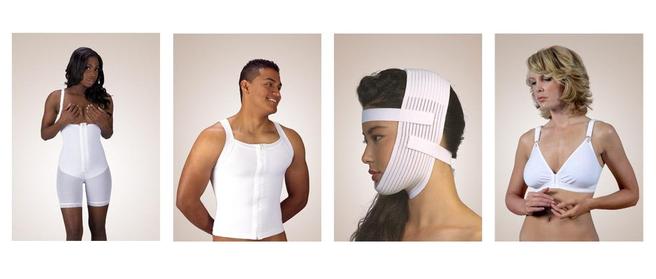
Surgery is a very safe and careful procedure, and caring for your body post-surgery should be as well. Before surgery, your medical professional will explain to you how the surgery works, what exactly it will accomplish, and will happen post-surgery; however, you may be left with a few unanswered questions, or you’ve forgotten important information. If this is the case, the most important thing you need to know is that it’s absolutely necessary to take care of your incisions during the recovery process. By doing so, you can prevent infections, which if not taken care of can lead to very serious medical conditions. Taking care of incisions post-surgery can also prevent scars as well.
Home Care
If you’re recovering from surgery at home, you or someone who has volunteered to help you will care for your incision. This leaves you or your assistant with the responsibility of looking for signs of infection, or other abnormal side effects of surgery. Your medical professional will give you instructions on how to care for yourself when you get home, and these instructions will include information about how to care for yourself post-surgery, how to change your bandages or compression garments and deal with incision drainage, how much rest to get, and what your diet should consist of.
You may be prescribed medication for your post-surgery recovery. Your doctor will be the professional who prescribes this medicine. Make sure to always notify your doctor of any allergies, or the use of other medications. This is a critical step to remember, because if your doctor is not aware of this information, you could later suffer from an allergic reaction to medication, or experience an uncomfortable drug interaction.
Hospital Care
If you’re staying in the hospital after surgery, you will receive frequent bandage or compression garment changes in order to guarantee cleanliness of the incision, which will prevent bacteria and infection. Doctors, surgeons, or nurses will inspect your incisions to ensure maximum comfort and health, and also explain to you how to take care of the area and inspect it yourself. Your medical professional will also tell you how much rest to get until you can be your active self again.
When an incision is infected, it will have abnormal characteristics such as a wet surface area, severe pain, large amounts of drainage, and redness or other bruise-like coloring around the area. If it’s healthy, your incision will appear dry with light drainage and mild pain. A medical professional will also use three different methods to close the incision, which include sutures, surgical glue, and stitches.
Infection and Other Side Effects
Infections and side effects of the surgical procedure and also medication you received post surgery can occur. If you feel strange and unwell, try to stay calm, and immediately visit an emergency room. Infections can sometimes occur and not even be visible on the surface area of your incision, so you may not be aware of how serious your condition is. Fortunately, most infections in their early stages are easy to treat with the use of antibiotics or other medications.
Home Care
If you’re recovering from surgery at home, you or someone who has volunteered to help you will care for your incision. This leaves you or your assistant with the responsibility of looking for signs of infection, or other abnormal side effects of surgery. Your medical professional will give you instructions on how to care for yourself when you get home, and these instructions will include information about how to care for yourself post-surgery, how to change your bandages or compression garments and deal with incision drainage, how much rest to get, and what your diet should consist of.
You may be prescribed medication for your post-surgery recovery. Your doctor will be the professional who prescribes this medicine. Make sure to always notify your doctor of any allergies, or the use of other medications. This is a critical step to remember, because if your doctor is not aware of this information, you could later suffer from an allergic reaction to medication, or experience an uncomfortable drug interaction.
Hospital Care
If you’re staying in the hospital after surgery, you will receive frequent bandage or compression garment changes in order to guarantee cleanliness of the incision, which will prevent bacteria and infection. Doctors, surgeons, or nurses will inspect your incisions to ensure maximum comfort and health, and also explain to you how to take care of the area and inspect it yourself. Your medical professional will also tell you how much rest to get until you can be your active self again.
When an incision is infected, it will have abnormal characteristics such as a wet surface area, severe pain, large amounts of drainage, and redness or other bruise-like coloring around the area. If it’s healthy, your incision will appear dry with light drainage and mild pain. A medical professional will also use three different methods to close the incision, which include sutures, surgical glue, and stitches.
Infection and Other Side Effects
Infections and side effects of the surgical procedure and also medication you received post surgery can occur. If you feel strange and unwell, try to stay calm, and immediately visit an emergency room. Infections can sometimes occur and not even be visible on the surface area of your incision, so you may not be aware of how serious your condition is. Fortunately, most infections in their early stages are easy to treat with the use of antibiotics or other medications.
 RSS Feed
RSS Feed